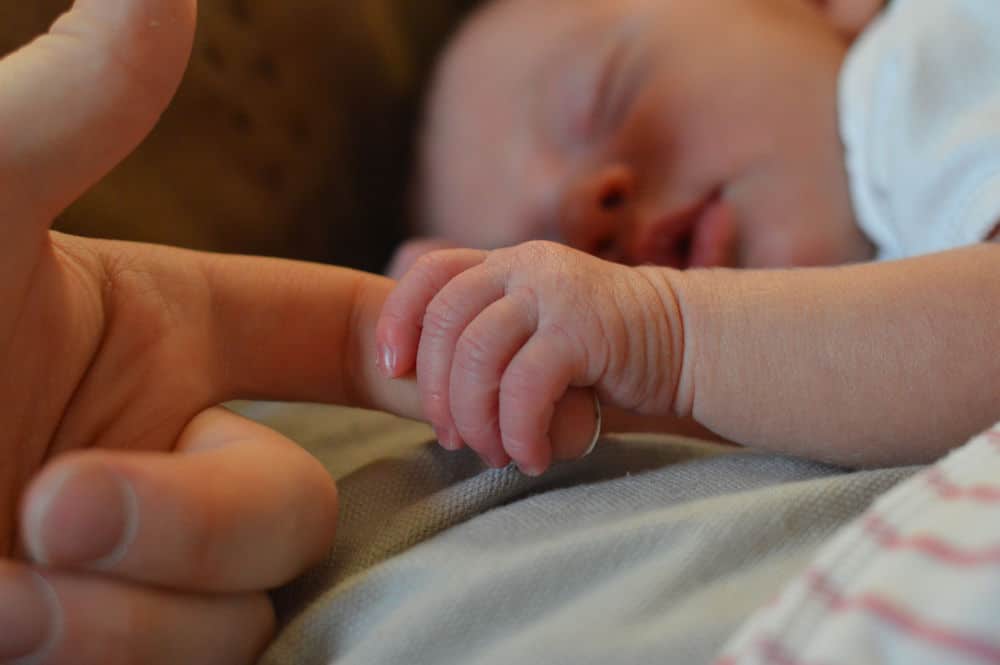
For most women, expecting a baby brings many joyous moments. The excitement of preparing for the newcomer is sometimes euphoric, from choosing a stylish pram to buying tiny clothes and shoes to preparing the baby’s room. We prepare so much for the arrival of the new baby, yet we often forget to prepare for an important aspect of ourselves, our own transformation to motherhood or the adjustment to becoming a mother again, for the second or third time.
This transformation comes with a big bang just a few days after the child is born and gives rise to what is called ‘baby blues’. It’s a process of disruption and revolution. Baby blues is something that we might have heard long time ago, or perhaps in the pre-natal course, nonetheless this might have seemed distant to us. Sometimes it is also difficult to encounter someone who discloses their own experience. Why would someone hide that she is feeling sad and anxious a few days after giving birth? A mother is expected to be happy and joyful with her new baby and also to bond with the baby immediately. Unfortunately, like with many other mental health issues, the feeling of depression, even after giving birth, is a taboo. Perhaps even more in the case of baby blues and postpartum depression as many people would tell the mother ‘u toqgħodx tagħmel hekk, il-Bambin bagħatlek anġlu.’ (Oh, don’t be like that, God has sent you an angel).
Defining baby blues and postpartum depression
Peripartum depression, or as we commonly know it, baby blues, usually appears after two days from giving birth and is a state of mind whereby the mother feels sad for no apparent reason. Episodes of crying are usually present and there is an experience of anxiety and irritability which usually subside within the first two to three weeks after birth. The sudden change in hormones after giving birth is a major contributor to the baby blues as these hormones try to settle back to their usual levels.
Postpartum depression kicks in when baby blues become more persistent, feeling sad, guilty or worthless, usually unable to take interest in anything, even in the baby. The fine line that differentiates baby blues from postpartum depression, which is considered as major depression in the DSM 5, is how often and how long the mother has been experiencing depressive episodes and how much it impedes on her functioning.
The psychological transformation
Besides the hormonal aspect that contributes to baby blues, there are other significant psychological and social factors that leave little for a mother to experience otherwise.
There are sudden changes that transpire when one becomes a mother. Let us imagine this scenario. You wake up calmly to start your day, go to work, meet colleagues and friends, go back home and prepare dinner, maybe you go for a walk with your partner or peacefully watch a movie, head to bed and have a good night sleep. The next thing that happens is you are in the delivery suit and go through the miraculous experience (even hardship) of labour. Finally, your most awaited child is in your arms, too little and too cute, and you spend the rest of the night or day watching his tiny features while he sleeps. And then, suddenly, your usual life and routine is turned upside down.

Yes, of course, with the few weeks, months or years of the child’s life, the mother (actually both parents) will experience sleep deprivation which makes it even harder to cope with the daily new routine. No longer meeting colleagues and friends makes the isolation and loneliness worse. Sometimes it is even difficult to have a shower as the baby leaves little time to look after yourself, not to mention the anxiety that the baby’s cry and other concerns bring with it, whether it is hunger, colic, sickness, tiredness or a nappy change. No one would imagine it is this hard when actually experiencing it. There is a sense of loss of self. Questions arise of ‘who have I become’? I cannot recognise myself anymore, my body, my temper, my moods. Who is this new person? And these questions become the vehicle to transformation, the renovation, a new you.
The mother is adjusting and recreating herself into being a mother and taking on this new identity with almost no experience at all. The mother has to get to know the baby and the baby also has to learn new things about the mother and the world. For some this could come naturally but for others it may be a process. This is ok and does not mean you love your baby any less. What it means is that you will unfold together in this process of becoming a mother and a child. It’s a time of personal change and growth which eventually will give meaning and a purpose to your whole life. So, to the new mamma’s, to those families who have just welcomed a new child, what you are feeling and experiencing is all part of a normal process of personal growth. The following are some suggestions that might support you in this phase.
Seeking support
Practical support is what most mothers need. Don’t feel ashamed to ask for support from your family or friends, maybe a cooked meal, or someone to look after your baby while you clean the house, take a shower or rest to recharge yourself.
Take turns with your partner and take some time for yourself, to pamper yourself, have a massage, or do your hair at a salon. Go for a coffee to connect with friends or perhaps alone to listen to some silence. Nurture the woman you are. Besides being a mother, do not forget you have your personal needs to take care of to feel good about yourself. Remember, a healthy mother means a healthy baby.
Now, this is something I struggled with, and that is changing my expectations. My life was always on the go. I was always a busy person especially with my studies, which I love. When I was pregnant I thought that when I’d have my baby I’ll have a lot of time on my hands and I’d cook nice meals every day, clean the house twice a week, go out with the baby the rest of days, engage in reading which is not work-related, exercise and so on. The only thing that I actually did was going out with the baby as I found that quite containing for my baby. I did not have any time to cook nice meals, no time for reading, no cleaning (in fact I got help for that as well) and I felt that all the expectations I had before didn’t help me at all but made me feel more of a failure for not managing to keep up with them. So, 16 months later, I learned how to lower my expectations. Nowadays, I feel that whatever I manage to do in a day is the best I can do.
My last and most important point is to seek professional support if needed. Speak with your gynaecologist who can refer you to support services at Mater Dei. Book a session or two with a therapist who can support you through this challenging period. If symptoms persist and you’re concerned that you or your loved ones could be on the stairway to postnatal depression, seek support. The lack of treatment in major depression can take a toll on both the parent’s mental health as well as the child’s development.






